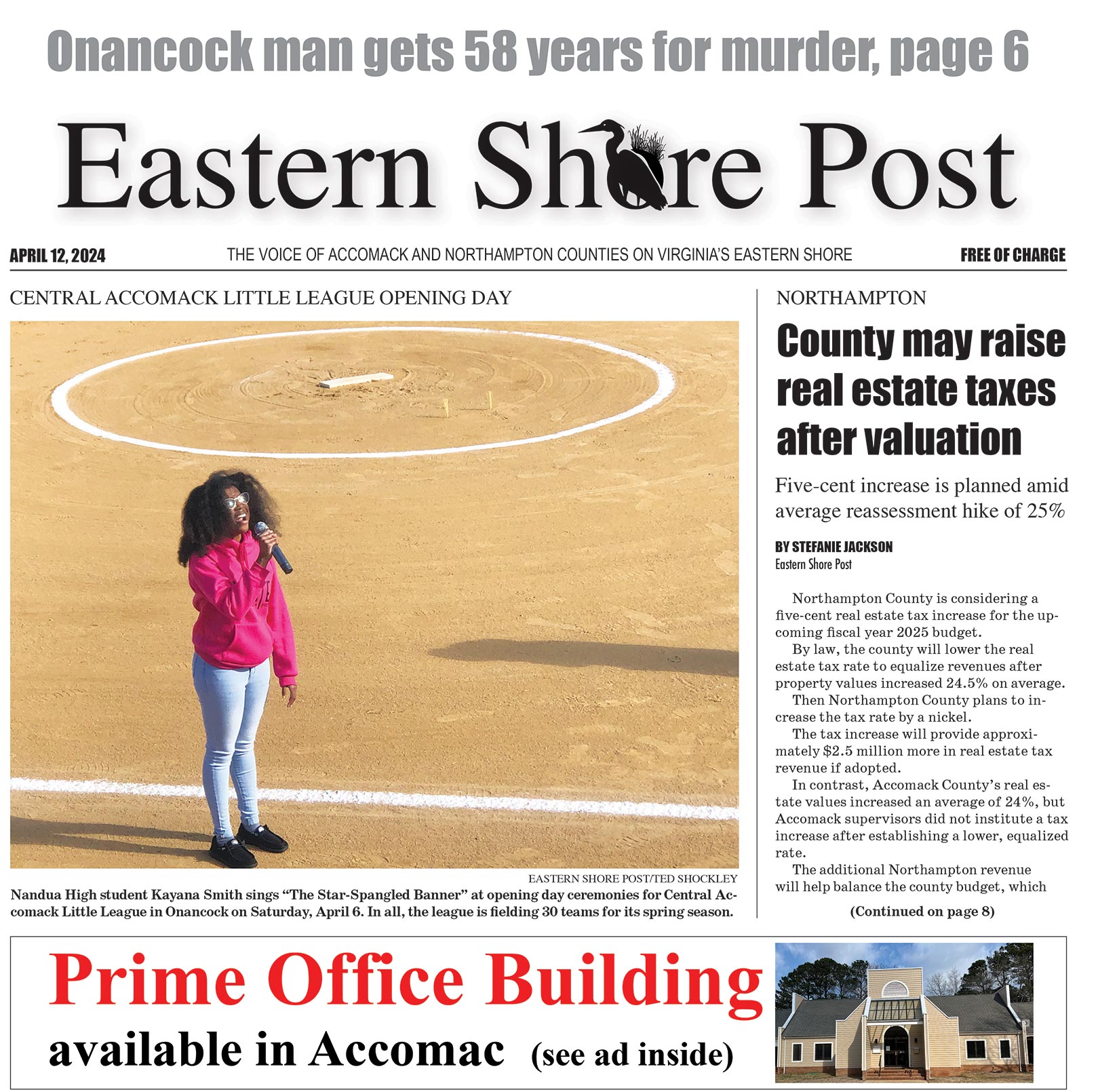By Stefanie Jackson – Jack Fisher, founder and CEO of Preserve Communities, the real estate development company that acquired Bay Creek in Cape Charles in 2019, is among seven individuals recently indicted by a grand jury for a combined total of 135 federal charges related to making and filing false tax returns, wire fraud, and money laundering.
“In total, the defendants and their co-conspirators sold over $1.3 billion in false and fraudulent tax deductions through this … scheme,” the indictment stated.
The other individuals indicted with Fisher were James Sinnott, Yekaterina Lopuhina aka Ekaterina Lopukhina aka Kate Joy, Walter Douglas Roberts II aka Terry Roberts, Clay Michael Weibel aka Clayton Weibel, Herbert Lewis, and Victor Smith.
The charges were filed Feb. 24 in the U.S. District Court for the Northern District of Georgia, Atlanta Division. Fisher was a certified public accountant (CPA) and partner of an Atlanta-area accounting firm, which he left to start his own business around 2002. He began selling what he called “real estate investment funds” that were actually illegal tax shelters, according to the indictment.
A tax shelter is used to reduce the amount of income taxes a person owes; there are both legal and illegal types of tax shelters. An example of a legal tax shelter is a tax-deferred retirement account such as a 401(k), which allows the account holder to delay paying taxes on the funds until retirement, at which time the amount of taxes owed would be reduced because the retiree would have less income and be in a lower tax bracket.
However, Fisher was selling tax shelters called syndicated conservation easement (SCE) tax shelters, so called because the cooperation of a syndicate – a group of people – was needed to conduct the illegal activity.
A conservation easement is a legal agreement that deeds an interest in real property to a charity for the purpose of conserving or protecting the land from development. The benefit to the property owner is a tax deduction.
Fisher partnered with James Sinnott, another CPA, to sell the tax shelters in question through an entity called Inland Capital Management. Kate Joy was a contact person for financial advisors and other CPAs such as Herbert Lewis and Victor Smith, who sold the tax shelters to their clients.
Terry Roberts and Clay Weibel were licensed appraisers in North Carolina and Georgia, respectively, whose work was key to the success of the alleged conspiracy.
From 2002 to 2012, Fisher organized and promoted about 11 tax shelters — shelters the Justice Department has said are illegal — that placed conservation easements on land within two Preserve Communities projects: The Preserve at Little Pine and French Broad Crossing, both in Marshall, N.C., near the Tennessee border.
Beginning at least in 2013, Fisher expanded the operation to include land not directly related to his own developments and sold at least 15 illegal tax shelters, the indictment stated.
The scheme allowed taxpayers to buy tax deductions at the end of the tax year, or sometimes after the tax year ended, to shelter their income from taxes for that year.
Clients (called participants in the indictment) made “real estate investments” that were used to buy ownership interests in companies that owned vacant land. Conservation easements were placed on the lands, which were donated to land conservancies.
Fisher and other defendants were among the clients who benefited from the tax shelters.
The appraisers inflated the value of the lands so that the amount Fisher and his co-conspirators paid for the ownership interests in the land companies was far less than the final appraised value of the lands, the indictment disclosed.
Every high-income investor who participated in the scheme was guaranteed at least a 4:1 tax deduction ratio, meaning that for every $100,000 invested, the taxpayer received a $400,000 tax deduction for charitable contributions. That is, the client’s taxable income for the year was reduced by $400,000.
The appraisers frequently valued land at least 30% higher than its purchase price, and often the appraised value was 10 times higher than the amount paid. The appraisers hid information that would contradict the inflated land values, such as previous sales of the land and unsuccessful attempts to develop it.
They did not disclose if the land was located in an undesirable area such as a marsh or mountainous terrain. The appraisers also would claim a property had zoning approvals for higher density than it actually had or infrastructure that did not exist.
The inflated appraisals provided a cushion for participants in the scheme to financially benefit even if the IRS audited the transaction – for example, if the appraisal was actually 30% higher but the IRS said it should be 20% lower.
“You just go to the high end of like ‘Well, okay, I must have been smoking something good … ‘,” Fisher said in 2018 to an undercover investigator who was posing as a potential promoter of the tax scheme, according to the indictment.
Fisher also admitted during a November 2018 meeting with the undercover investigator that clients were coached to refer to their investments as “real estate” instead of a “tax shelter.”
According to the indictment, Fisher, Sinnott, and Joy obstructed the IRS from detecting the fraud by holding an annual vote by which clients supposedly decided how their money would be invested. Land development was included in the list of investment options, but the vote always was rigged in favor of conservation easements.
The defendants further deceived the IRS, the indictment showed, by asking clients to backdate documents to make conservation easement transactions appear legitimate. The defendants also impeded an IRS audit of a tax return by delaying the submittal of requested documents until the statute of limitations had passed to audit the related conservation easement transaction.
Fisher and Sinnott were further charged with assisting in making an illegal deduction of $138,680,000 on a tax return for Bay Creek South LLC for the 2019 tax year, among other charges.
Roberts and Weibel received more than $560,000 in 2013 through 2019 for their appraisals, and Lewis and Smith received commissions totaling nearly $1.5 million in 2014 through 2020 for selling the tax shelters. The commissions were disguised on invoices with labels such as “consulting fees” or “tax return preparation fees,” the indictment showed.
Between tax years 2013 and 2020, Joy received $1 million, Sinnott received $6 million, and Fisher received $60 million from the fraudulent tax scheme, according to the indictment.
The money was used to pay off liens on noneasement portions of land and to purchase additional land and dwellings, according to the indictment.
It further stated money was spent on personal items, including a vacation home in the Caribbean Islands and vehicles such as a Mercedes SUV and a luxury recreational vehicle. Other items purchased included an airplane, a show jumping horse, and a Super Bowl Hall of Fame experience.
The federal charges related to filing false tax returns stemmed from the defendants assisting an accounting firm and others filing tax returns that included tax deductions to which no one was entitled; the charges of wire fraud were due to the electronic filing of the false tax returns, and the charges of money laundering related to the use of a Preserve Communities account and other accounts to spend the illegally obtained funds.
If the defendants are convicted, they must forfeit the illegally obtained money and real property, including about a half-dozen homes and thousands of acres of land.
According to the indictment, if any of the property cannot be recovered due to the defendants’ actions, such as selling the property or relocating it beyond the court’s jurisdiction, the defendants shall forfeit other property in their possession, up to the value of the forfeitable property.
Defendants convicted of crimes such as tax fraud and money laundering also may be sentenced to time in federal prison.
A call to Fisher about this story and the charges was not returned.



